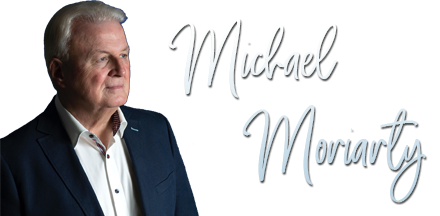Life is a series of natural and spontaneous changes. Don’t resist them; they only create sorrow. Let reality be reality. Let things flow naturally forward in whatever way they like – Lao Tzu (Chinese philosopher).
It was the Greek philosopher, Heraclitus who said that the only constant in life is change. Everyday we experience change-the weather, the seasons, our moods – and mostly we accommodate change in our daily life routines. However, we can often be challenged by change events which can affect us profoundly- family bereavement, health issues , the end of a relationship, job loss or loss of status.
Such events can shake us to the core and different people respond in different ways to significant change events. Some of us are better at coping with change than others because of our particular life skills. We can be reactive, non-reactive or proactive. It is our reactions to change rather than change itself which can impact us most.While we are never free from change we are free to decide how we respond to change.
Our basic instinct in life is self-preservation and hence we like to be in control of our own environment. We are programmed for wanting certainty and consistency both of which bring predictability which gives us a degree of comfort. We tend not to like much change as it interferes with our autonomy and our own sense of self-determination. Uncertainty brings discomfort and some of us resist change because it threatens our natural habit patterns.
Yet there are many of us who can embrace change as a way of life. We have learned to be flexible and adaptable because we know few things remain constant.We can even be somewhat smug about our personal capacity to embrace change until we are confronted with a significant change event which shakes us to the core, which challenges our self-worth, undermines our self-image and lowers our self-esteem.
Let’s be clear. Change is often necessary and is mostly good. Change can bring personal growth and professional opportunities and many of us find opportunities in change. In business entities and in all kinds of organisations we know that change is necessary for survival.The company that stands still dies so life must go on.
We must all accept change and transition as a fact of life because in life we are faced with infinite change. Change can be the catalyst for our personal and professional growth. We can accept change but it is up to us to manage it. Change and transformation can be challenging and intimidating and can cause us stress. In keeping with our basic need to control our environment we seek to manage change because we fear a departure from the certainty of the status quo.
Any significant change in our lives can cause stress, the level of which depends on our reaction to change events. Our reactions to stress and our coping abilities to deal with stress will determine the impact it can have on our lives.
But manageable stress is not necessarily a bad thing because it keeps us alert and can take us through challenging situations. It can lead us to excel and can give us courage and strength. Out of control, constant and unrelenting stress, however, can become our enemy which has the capacity to damage us to a greater or less degree.
To be clear, it is not the change event which damages us; it is how we react to a significant change event which can negatively impact on our mental, emotional and physical health. Significant change can be intimidating and can potentially make us vulnerable and fearful; it can cause us pain; it can equally make us angry and can distort our thinking.
While we cannot avoid change and change events will always impact on us we can control our reactions and we can learn to handle change more positively. We can react in classic victim fashion by wallowing in self-pity, self-blame and contrived helplessness. We can react in anger or with panic; we can be fearful or blame ourselves or others. Or we can react calmly with equanimity by deciding to be objective and focused on the situation rather than our feelings. Our reactions can be controlled and managed and this is a choice we can make.
Putting things in perspective, focussing on what we can control, managing our emotions and facing our fears is the best response we can take when faced with an impactful and serious change event. Try to manage the resultant pressure by remaining calm and objective. Be wary of knee-jerk reactions; a reflective approach, where you examine your options carefully and rationally is what you must do. Let go of the hurt, fear or pain as soon as you can and try to move on. There is no future in the past. Try to control what you can control and forget about what you can’t control. Forget the past, anchor in the present and plan the future.
Your future will change and your vision of your own future will be altered. While you may not be able to change your new situation you can change yourself and how you react. Uncertainty can be overwhelming if we allow it. Our egos can be damaged and our self-esteem can plummet if we let that happen.
Being aware of your mindset and controlling what you feed your mind is critically important when you are trying to deal with a significant change event. When we feel out of control, helpless or panicked we can sometimes become immobilised or often make bad decisions. Check your thought patterns and seek to make the best of the situation in which you find yourself.
Despite a possible blow to your ego and self-confidence now is the time to focus on your strengths. Your attitude to significant change will determine how you experience it. Evaluate your options rationally and, no matter what, you must continue to believe in yourself.
A good way to identify and face your fears is to write them down and review them often. This can help diminish them so that you can move on to regain control of your life. Always do what you are afraid to do-Ralph Waldo Emerson. Focus on what you can control and don’t waste time with regrets or with what you cannot control.
Despite the knocks you may have received you should not allow your emotions dictate your actions, distort your self-image or destroy your self-confidence. If you need counselling to help you regain control of your life you should seek that support. Stay in the present moment as you seek to readjust to a different future.
In situations where we experience family bereavement or the end of a close relationship we can actually experience shock. We can experience a deep sense of grief and loss which can destabilise us. We must accept what we cannot control and control what we can. Self-care in these situations should be a priority. Availing of professional counselling or talking to others in similar situations can also be very supportive and beneficial. Learning to cope with and adjust to new circumstances must be the primary objective in such profound change events.
In the workplace, it is change and innovation which drive businesses and organisations forward. Change can be incremental or it can be radical and disruptive. The bigger the change the more likely will be the resistance. Research shows that companies go through cycles of change every three years so while workplace change is inevitable it needs good leadership to address the potential resistance that can often arise.
Any change programme should be driven by an honest and compelling vision which states the real facts and which is constantly communicated. Resistance can arise from fear about changing roles and relationships or from lack of real communication. Trying to understand people’s fears and the cause of resistance to change must be the priority of the change managers. Perceptions of any significant proposed change may differ because of different self-interests. The oldest and strongest emotion of mankind is fear, and the oldest and strongest kind of fear is fear of the unknown- H.P. Lovecraft.

(Photo by Bluehouse Skis on Unsplash)
Those who resist change will have a voice and that voice must be heard and understood. Fear of the future or anger about changing circumstances can often be compounded by a perceived lack of consultation.While maintaining the vision, and regularly clarifying the facts is important, so also is the communication to and engagement with all those who are to be impacted by significant change. Coaching, mediation and training are often utilised to assist the change process in the workplace.
Buy-in to the change process can be made easier if there is confidence in the leadership and in those managing change. Leaders need followers and followers only voluntarily follow those they trust. As in the case of personal life changes there are emotions which can dominate the process of change in a workplace scenario,. Here also, emotions such as anger, regret, fear and others may prevail and have to be ameliorated for successful change to transpire.
Many of us are conditioned and mentally prepared to live with constant change. Millenials and Gen Z are usually more flexible than older generations to manage change as a constant factor in their lives . We can all learn to accept uncertainty but the greater challenge is to control our emotions, attitudes and actions in response to change events.
As rapid change is now a part of our life experiences we all need to self-examine how adaptable and ready we are to cope with change. Have we a coping strategy for our new adaptive lives? How equipped are we to deal with change in situations where we are faced with infinite change? Can we control our negative emotions and foster a more positive reaction to change in our lives ? Have we looked at viable coping strategies so that we both survive and thrive in a world of constant, fast change?
Having worked for many years in both national and international leadership roles I decided to step aside from these roles and seek a new life with a more balanced lifestyle. For four decades I was at my workplace early each day and often worked late into the evenings. Suddenly all that stopped. My phone stopped ringing and my work emails and texts ended suddenly. I experienced a mini crisis in my life as I felt somewhat obsolete ( self-inflicted).
I had to manage this sudden lifestyle change as it was an unprecedented event for me. For most of my adult life I had been engaged in workplaces as both manager and leader. Now I was on my own, faced with a new reality . I could have decided to live a life of leisure, follow my hobbies, engage with my friends and travel the world. While this happened to a certain extent it was not sufficient to help me effectively transition the sudden change of lifestyle. I had to manage self-esteem and self-identity issues.

( Photo by Linus Nylund on Unsplash)
In response to this significant change event I developed some coping tactics. In order to minimise the impact of lifestyle change I still arose early each morning to go to work-this time to my home office. I was lucky that I could imitate my work lifestyle somewhat by remaining in my office for 5/6 hours per day. But what to do ? As well as working on a number of history projects, writing articles and providing leadership training I wrote my leadership book-Every Leader’s Reality Guide. I am currently working on my second book and I publish my weekly blog.
In a certain way, I have reinvented myself by focusing on my personal strengths to re-establish stability in my life which, in turn, supports my personal wellbeing. I transitioned from having senior leadership roles in both national and international organisations to being an author and a blogger. I transitioned successfully because I remained positive, assessed my career experience and strengths to become constructively engaged in sharing my knowledge and experience with others.
Necessity is the mother of invention so when challenged by change the best reaction is to remain calm and as positive as possible. You could be very surprised that a major change event could be the catalyst for you to discover talents and skills you never thought you had.
Your reaction to a changed situation will change you for better or for worse. You decide. You may not have the power to change what has happened but you certainly have the power to control the way you respond to what happened. The choice is yours to make. Change challenges us. You will never reach your destination if you stop and throw stones at every dog that barks – Winston Churchill. Adapt to change and move on.
( Feature photo by Ross Findon on Unsplash)

